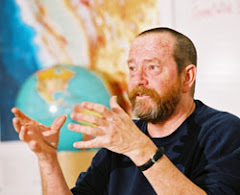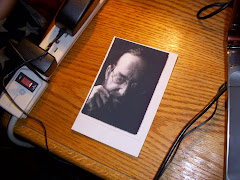[CenterDoug Notes: I felt the shorter version of this piece (last post) needed expansion for clarity, so I did that. I like it better. CD]
[For The Glenwood Post Independent]
“Well, there it is, again,” I growled to my housemate, film-producer Tex, while punching off my cell phone. “Another nasty comment against Latinos “cramming too many peons” into their houses, “all sleeping together, I suppose!” Ay, Chihuahua! Sometimes I cringe at how we cling to cross-cultural stereotypes, while forgetting to look at our own kinky culture in the mirror. Ethnocentricity. I’ve been working on that most of my life. Raised in New Jersey in the bigoted 1950’s, I’ve had to dissolve the boxes of prejudice that surrounded me in my youth. Instead, I’ve opted to see everyone in me and me in everyone else, a better balance, and one that leads to gratitude. How I wish I’d known that unity when I still had pimples!
“Sleeping space” in the US and Nicaragua is an ethnocentric case in point. The stereotype above is very often not true among North American Latinos: most of the Hispanic families I know in the Valley are small and occupy single family dwellings, most with several bedrooms. The family swells in size and communal sleeping space only on special family occasions and holy days. There are teeming exceptions, as well. In the peasant economy of Northern Nicaragua, though, four generations of a family may share the sleeping areas of their house together, wearing the clothes of the previous day through the night as their only privacy, changed in the morning. In the States, in contrast, most people crave separate sleeping space, unless, of course, they’re “sleeping” with significant others. It’s a cultural difference from which I’ve grown.
In that chat on the porch in Glenwood Springs—I share a 3-story rental house full of private and communal spaces with three other single adults—Tex said, “I need a place to close out the world, for solitude. A while back, in Utah, I lived in an unheated space in the basement all winter rather than share a warm master bedroom suite upstairs, even with my best friend: I need privacy, not a dorm. But I like this housemate thing, as long as you’re all respecting the privacy of my bedroom.”
“Me, too. I’m an introvert and need perhaps too much quiet time, but I can choose it here or not. Even in my marriages,” I remarked, “I’d want a door I could close, usually my home office. Privacy’s an entitlement here, but not in nightly Nicaragua, where most people don’t want it.”
“Huh?”
“Listen, Tex. When I first visited Teote in 1993, in the house of my now-adopted peasant family, the Betancos, they gave me their only single room. The eight family members slept in the other cuarto, in hammocks, because I also had the only bed. ‘Norteamericanos,’ they believed, ‘need space,’ whereas Nicaragüense ‘prefer company,’ especially when asleep. I felt guilty, being such a space hog. They assured me they wouldn’t want it otherwise. ‘Too many desperados out there to sleep alone,’ they said. ‘How can you do it?’”
“They’re stereotyping us?” Tex asked. “Hmm. Some of that might be Hispanic hospitality. But we also shift beds to accommodate guests here. That’s the same.”
“Sure. However, we move back to private spaces when they’re gone. Cultural diversity’s at work, Tex, and it starts very early. Most everyone here was raised from birth separated from their parents; in Nicaragua, hardly any mother would sleep apart from her babies, and, as the children grow, they just shift from their parents’ bed to that of the kids, in the same room. No one’s ever heard of a playpen or a crib or a nursery, much less infant daycare. 24/7, family’s holding the baby, until she’s walking and talking, and, then, there’s a family hand to hold. Many Nicaraguans live their entire lives in the home they were raised in, bringing in spouses and kids as they come along.”
“That’s pretty different. Maybe we have varying definitions of ‘family’?”
“Absolutely. ‘Family’ means security in Nicaragua. Here, most try to escape, to establish separate living quarters, at least, as soon as we can, to be independent. As another friend said to me, “most people resent their families!” That’s too generalized, of course. Maybe, though, because we stress self-sufficiency, while Nicaraguans push family solidarity, the cultures divide, even in our sleeping patterns: yet, both are valuable, cultural-survival models and both are learned behaviors.
We can learn from each other to grow beyond that division, to be both independent and One. In 1993, when I first slept with the Betancos, I grabbed for their “extended-ness,” a feeling I’d lost in the years since I left New Jersey in the early seventies. I adopted a new set of parents, eight brothers and sisters, and 49 nieces and nephews, to fill that empty space. Now that I’ve built a private suite at my sister’s house, I choose to leave the adjoining door ajar at night, in case someone, seeing my light on, needs a talk or a cuddle. Since the rafters of the house are open so the bats can gobble the mosquitos, all hear any sound, anyway, so why not? Privacy’s an ‘inside’ thing down there. And, up here, I’m a more open Dad and Pop-Pop, building family, since I’ve shared my space with campesinos, deep in the heart of Nicaragua.”
Gracias, CenterDoug
Thursday, September 11, 2008
Subscribe to:
Post Comments (Atom)
















































































No comments:
Post a Comment